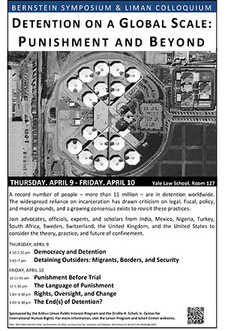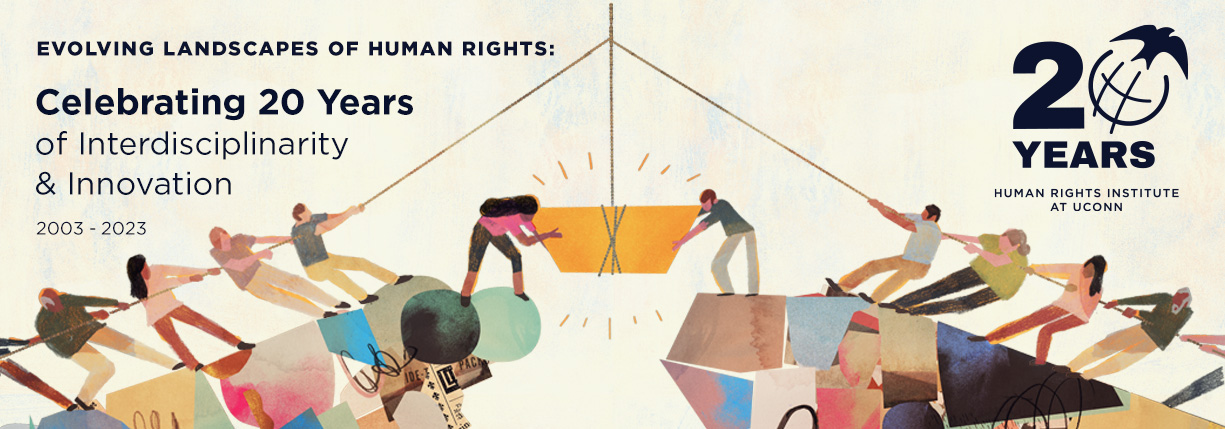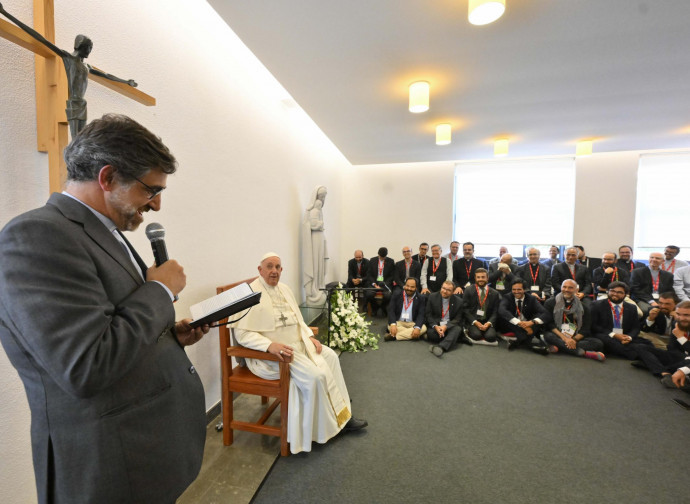COLLOQUIUM: The Subject of Injustice - COLLOQUIUM: THE SUBJECT OF INJUSTICE Bethania Assy (Pontifical Catholic University of Rio de Janeiro, Brasil)Vera Karam de Chueiri (Federal University of Paraná, Brazil)Commentator: Jay M. Bernstein (New School for Social Research) The Subject of Injustice: Radicalizing a Philosophical GrammarBethania Assy This paper offers a theoretical approach to injustice. The problem stems from the gap left open by the two main approaches to justice, which have defined the dominant vocabularies of late modernity: one that absorbs the multiplicity of anthropoi into a unified humanity and one that classifies each one in terms of pre-defined identity. In both approaches, the archetypal morphology of the rule of law reproduces a representational schema where concrete experiences of social injustice are not allowed to introduce an unpredictable singular event of social injustice. To recover what is lost between these two dichotomic normativities and to articulate an alternative understanding of justice—one that flows from the simultaneous singularity and communality of self-(en)acting subjectivity resulting from suffering social injustice—I propose that we take the concrete experiences of the subjects of social injustice as our prioritized lenses. This entails asking: how does their production of knowledge radicalize a certain philosophical grammar implicated in dealing with justice? The Subject of Injustice: Radicalizing Constitutional TheoryVera Karam de Chueiri This paper proposes a radicalization of the constitution as a political and juridical idea and practice. Radicalizing the constitution involves an understanding of it as an event in a noisy relationship between promise and effectiveness, potentiality and actuality, political action and constituted order, democracy and constitutionalism. But more than understanding the constitution as emerging from such dichotomies, it is necessary to internalize this noise in political and judicial practices so that everyone’s commitment to democracy and constitutionalism can be deepened. This means the impact of the notion of a radical Constitution on the daily exercise of fundamental rights, mediated by institutions such as constitutional jurisdiction, parliament, and other deliberative bodies—as well as what goes beyond institutions, such as the people in their performance and the timing of events. There are no quiet gears in the engine room of constitutional democracy. The radical constitution (promise and effectiveness, actuality and potentiality, constituent and constituted) and its claim to serve as a trigger for political action embodies the subject of injustice. Radicality is defined in non-essentialist terms because it is rooted in radical action; it is diffusive, radiating, contagious, mobilizing subjects and their bodies in their transformative political action. The notion of radicality also responds to the radicality of precariousness that deprives lives and rights in a way that does not produce a normative language of politics that further deprives the resistance of these same bodies and individuals—a danger of all revolutionary action. - Thursday, October 19, 2023
COLLOQUIUM: THE SUBJECT OF INJUSTICE
Bethania Assy (Pontifical Catholic University of Rio de Janeiro, Brasil)
Vera Karam de Chueiri (Federal University of Paraná, Brazil)
Commentator: Jay M. Bernstein (New School for Social Research)
The Subject of Injustice: Radicalizing a Philosophical Grammar
Bethania Assy
This paper offers a theoretical approach to injustice. The problem stems from the gap left open by the two main approaches to justice, which have defined the dominant vocabularies of late modernity: one that absorbs the multiplicity of anthropoi into a unified humanity and one that classifies each one in terms of pre-defined identity. In both approaches, the archetypal morphology of the rule of law reproduces a representational schema where concrete experiences of social injustice are not allowed to introduce an unpredictable singular event of social injustice. To recover what is lost between these two dichotomic normativities and to articulate an alternative understanding of justice—one that flows from the simultaneous singularity and communality of self-(en)acting subjectivity resulting from suffering social injustice—I propose that we take the concrete experiences of the subjects of social injustice as our prioritized lenses. This entails asking: how does their production of knowledge radicalize a certain philosophical grammar implicated in dealing with justice?
The Subject of Injustice: Radicalizing Constitutional Theory
Vera Karam de Chueiri
This paper proposes a radicalization of the constitution as a political and juridical idea and practice. Radicalizing the constitution involves an understanding of it as an event in a noisy relationship between promise and effectiveness, potentiality and actuality, political action and constituted order, democracy and constitutionalism. But more than understanding the constitution as emerging from such dichotomies, it is necessary to internalize this noise in political and judicial practices so that everyone’s commitment to democracy and constitutionalism can be deepened. This means the impact of the notion of a radical Constitution on the daily exercise of fundamental rights, mediated by institutions such as constitutional jurisdiction, parliament, and other deliberative bodies—as well as what goes beyond institutions, such as the people in their performance and the timing of events. There are no quiet gears in the engine room of constitutional democracy. The radical constitution (promise and effectiveness, actuality and potentiality, constituent and constituted) and its claim to serve as a trigger for political action embodies the subject of injustice. Radicality is defined in non-essentialist terms because it is rooted in radical action; it is diffusive, radiating, contagious, mobilizing subjects and their bodies in their transformative political action. The notion of radicality also responds to the radicality of precariousness that deprives lives and rights in a way that does not produce a normative language of politics that further deprives the resistance of these same bodies and individuals—a danger of all revolutionary action.

Liman Public Interest Colloquium
November 27, 2023 Gladstein Family Human Rights Institute
HCCH - Hague Conference on Private International Law
Presentations – Jennifer McWeeny
European Hobbes Society Online Colloquium (1) Submission and Subjection in Leviathan: Good Subjects in the Hobbesian Commonwealth
European Hobbes Society Online Colloquium (1): Introduction to Potentia
Cultural Studies Events – Page 6 – Center for Cultural Studies
Book Review: Eternal - Colloquium
MSU College of Arts & Letters - On November 30 at 12:00 p.m., see Elena Ruiz, Assistant Professor of Philosophy, present Understanding Structural Violence: An Integrative Approach as part of #MSU C4I's
Faith Colloquium
Ethics in the Classroom: Empowering the Next Generation
The Pope's interviews guarantee fixed slogans and muddled minds - Daily Compass
Psychology Colloquium, Blind Injustice: A Former Prosecutor Exposes the Psychology and Politics of Wrongful Convictions, March 2 - Ohio University




















